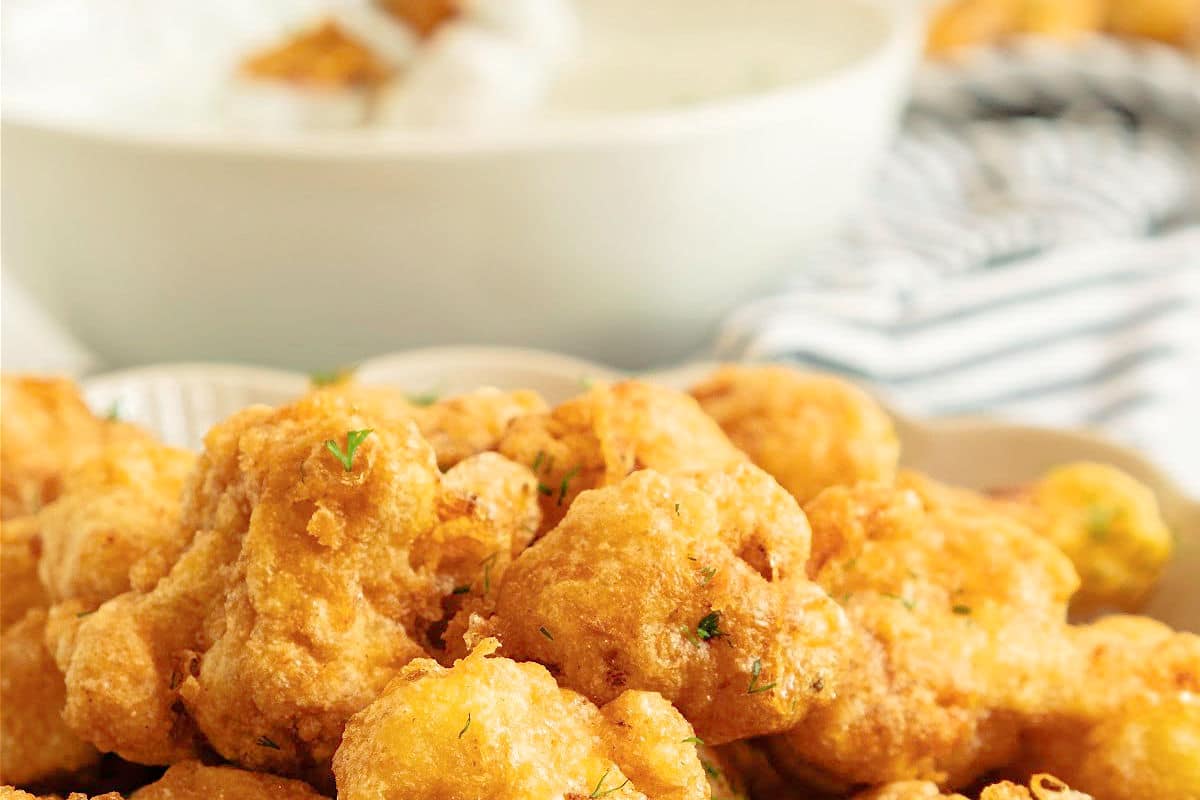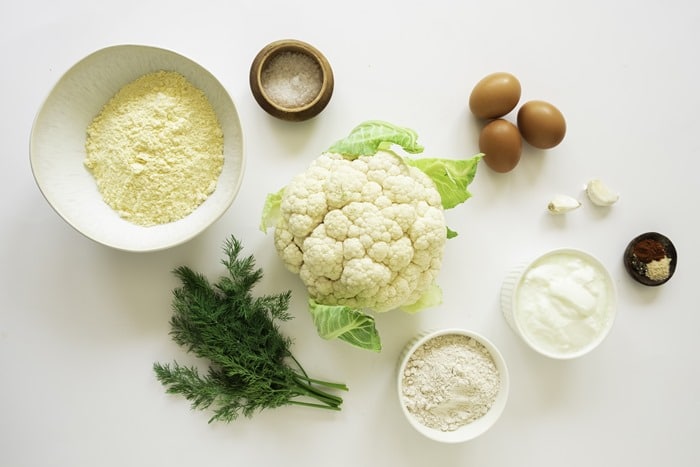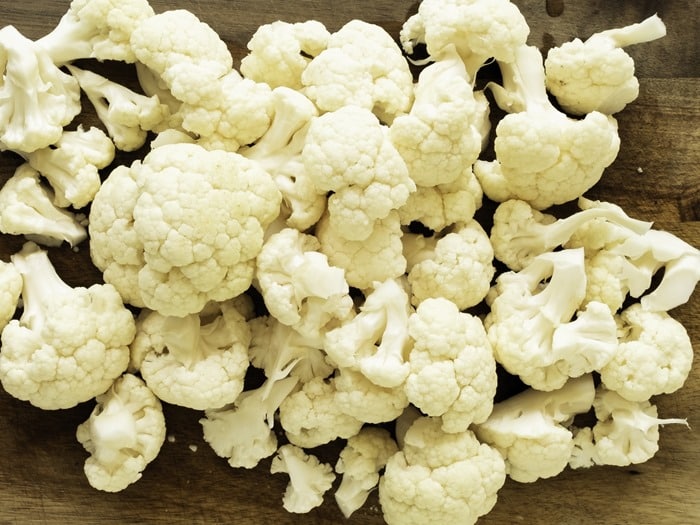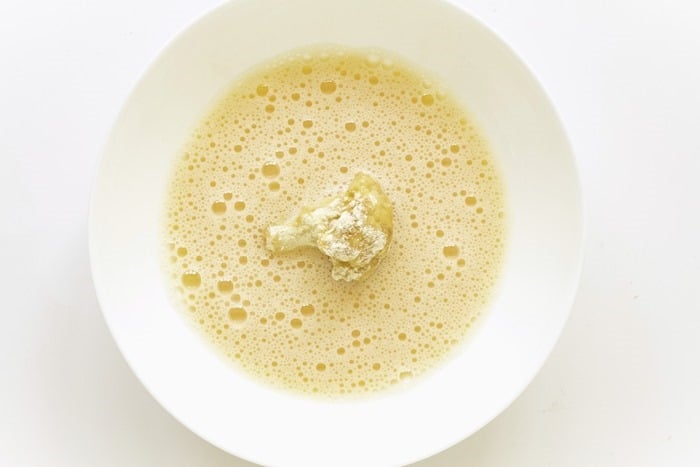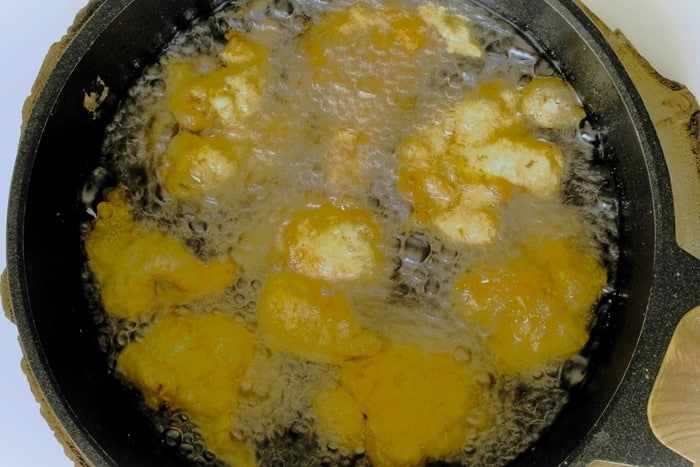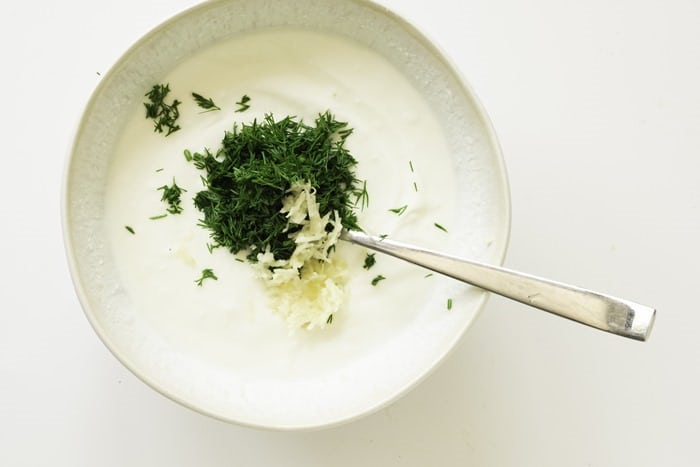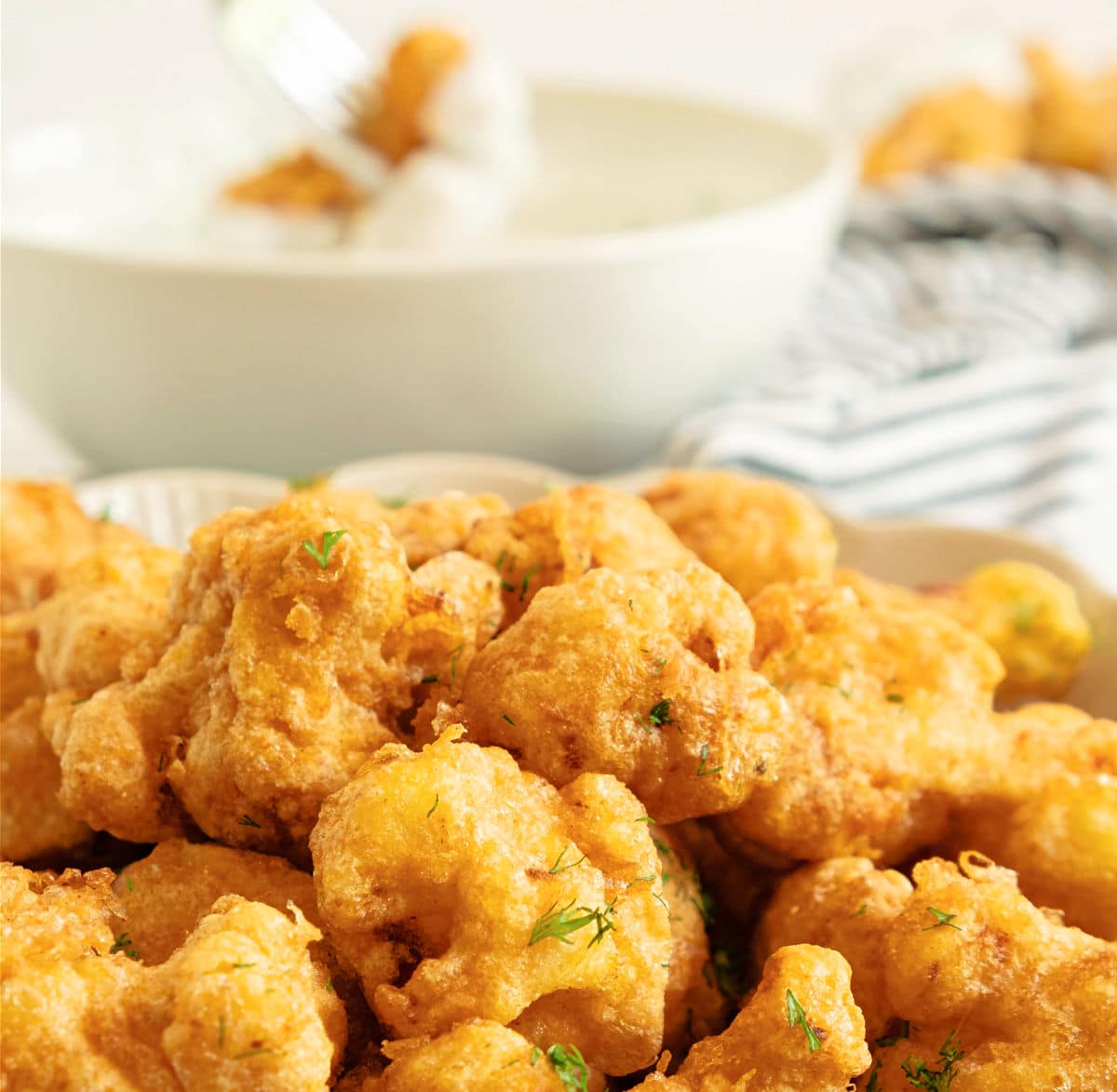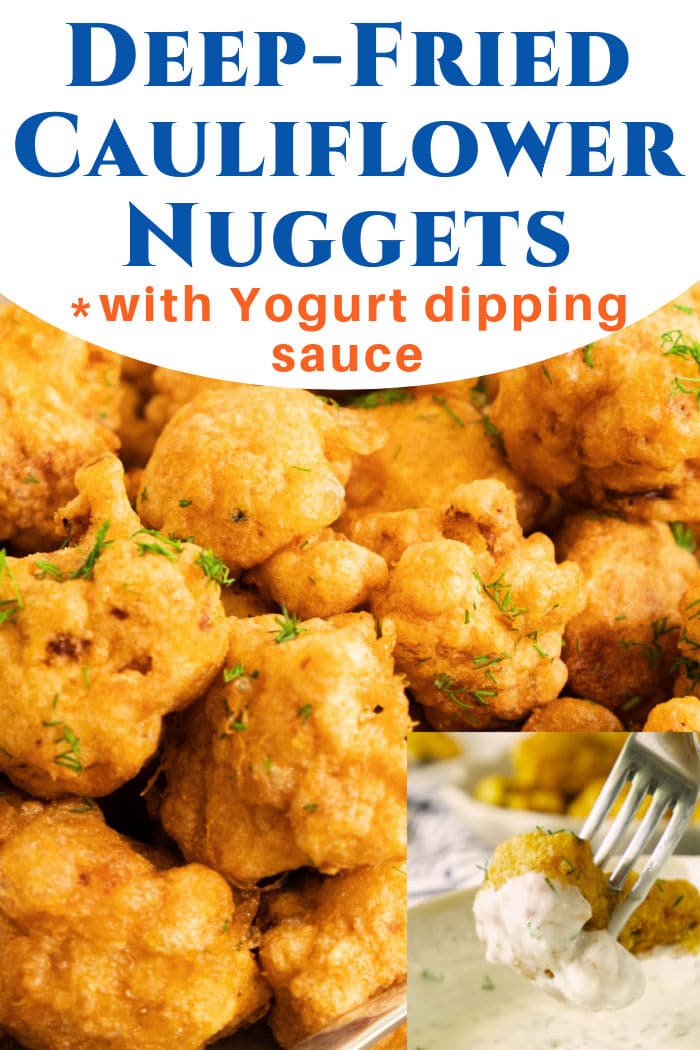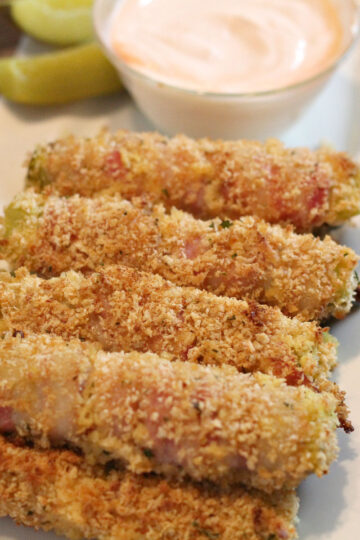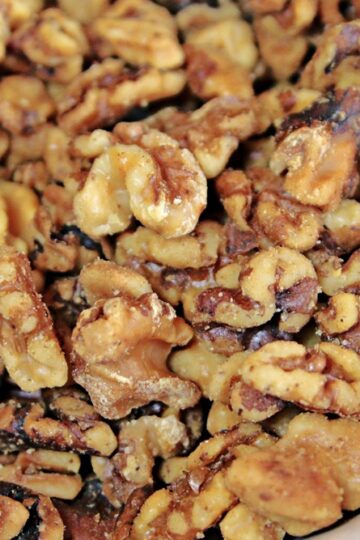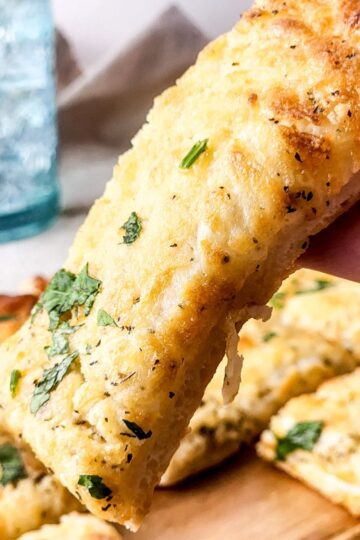Separate the florets from a fresh head of cauliflower, coat them in egg, then seasoned flour and cornbread, and fry in hot oil to make these crispy cauliflower nuggets.
If you don't like cauliflower, maybe you've never had it deep-fried. I mean, who doesn't love crispy fried food? And my yogurt dipping sauce with dill and garlic is the perfect finish.
Frying food isn't always bad. And if the only way you can get your kids....or hubby to eat vegetables is by frying them then do it-just not every day.
How To Make Deep Fried Cauliflower Nuggets
Gather all the ingredients.
Wash the head of cauliflower and separate the florets.
Dip the florets in seasoned flour, then egg, and next the cornmeal.
Deep fry in canola oil.
Mix the yogurt and seasonings to make the dipping sauce.
Crispy Deep Fried Cauliflower Nuggets Recipe
This dish is a great potluck dish or party appetizer.
Ingredients:
For the Cauliflower Nuggets:
1 medium head of cauliflower, cut into bite-sized florets
½ cup all-purpose flour
1 cup cornmeal
3 eggs
1 teaspoon garlic powder
1 teaspoon smoked paprika
½ teaspoon black pepper
½ teaspoon salt
For the sauce:
2 cups plain yogurt
2 garlic cloves grated
1 small bunch of fresh dill chopped
salt to taste
Instructions:
Make the sauce:
Mix yogurt, dill, garlic, and salt (to taste) in a medium bowl and refrigerate.
Prepare the cauliflower:
Break the cauliflower into florets.
Heat a pot of water to boiling.
Add the cauliflower and cook until slightly tender. Do not overcook.
Fry the cauliflower:
Heat a deep pan of oil (vegetable oil or lard) to about 330F.
Place the flour and cornmeal in separate bowls.
Add the spices and salt to taste in the dish with the flour.
In a deep dish, beat the eggs.
Roll each cauliflower floret first in the flour, then in the egg, and finally in the cornmeal.
Fry on each side for 1-2 minutes or until golden brown.
Arrange on a pretty plate and serve warm. Sprinkle with fresh dill and serve with the yogurt sauce.
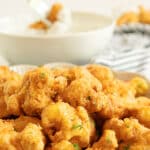
Deep Fried Cauliflower Nuggets With Yogurt Sauce
Author: Recipe Idea Shop
Ingredients
For the Cauliflower Nuggets:
- 1 medium head of cauliflower cut into bite-sized florets
- ½ cup all-purpose flour
- 1 cup cornmeal
- 3 eggs
- 1 teaspoon garlic powder
- 1 teaspoon smoked paprika
- ½ teaspoon black pepper
- ½ teaspoon salt
For the sauce:
- 2 cups plain yogurt
- 2 garlic cloves grated
- 1 small bunch of fresh dill chopped fine
- salt to taste
Instructions
Prepare the cauliflower:
- Break the cauliflower into florets. Heat a pot of water to boiling.
- Add the cauliflower and cook until slightly tender.
- Note: Do not overcook the cauliflower.
Fry the cauliflower florets:
- Heat a deep pan with your choice of fat (vegetable oil or lard) to about 330F.
- Place the flour and cornmeal in separate bowls.
- Add the spices and salt to taste to the flour dish.
- In a separate bowl, beat the eggs.
- Roll each cauliflower floret first in the flour, then in the egg, and finally in the cornmeal.
- Fry on each side for 1-2 minutes or until golden brown.
- Arrange on a pretty plate and serve warm. Sprinkle with fresh dill and serve with the yogurt sauce.
Make the yogurt dipping sauce:
- In a medium bowl, combine yogurt, dill, garlic, and salt totaste. Mix well and refrigerate while you prepare the cauliflower bites.
Other recipes for you.....
Refrigerator Biscuits Chicken Pot Pie
Extra Spicy Corn Chex Party Mix With Special Ingredients
Baked French Toast You Prep The Night Before

